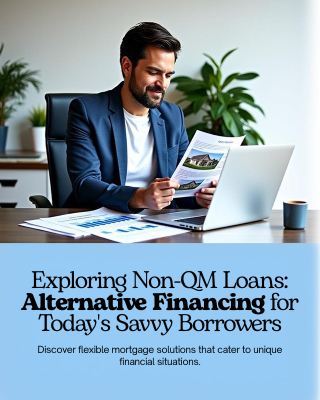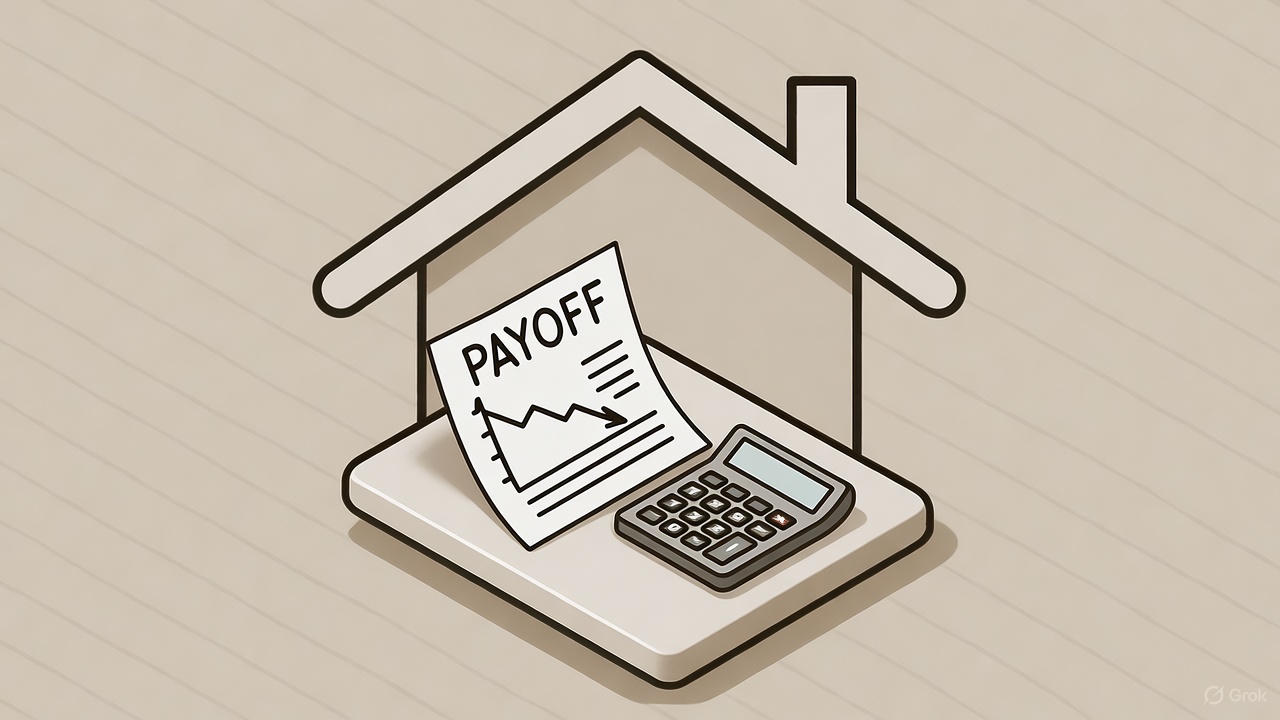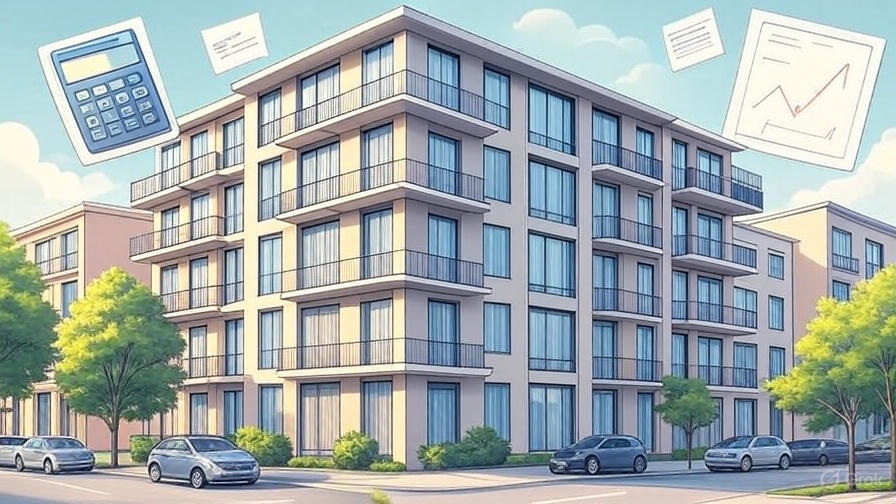If you’re an investor, entrepreneur, or own a one-man shop trying to get a mortgage, traditional banks probably make you want to pull your hair out. They want W-2s you don’t have, tax returns that make you look broke (thanks to smart write-offs), and employment verification letters for a business you own. Meanwhile, you’re sitting on substantial assets or are cash-flowing a business or properties, and wondering why you can’t qualify for a traditional $400K mortgage. Non-Qualified Mortgage (Non-QM) loans solve this ridiculous problem by looking at your actual financial situation instead of outdated paperwork requirements.
What Are Non-QM Loans and Who Needs Them
Non-Qualified Mortgages don’t meet the Consumer Financial Protection Bureau’s standard “Qualified Mortgage” rules. The government created these standards to protect typical W-2 employees from predatory lending. Problem is, those same rules exclude financially sophisticated people who make money in ways that don’t fit neat little boxes.
Traditional mortgage qualifying was designed for employees with steady paychecks. When you’re self-employed, own rental properties, or have complex income sources, the system works against you. Your smart tax planning hurts your mortgage application. Your business write-offs make you look poor on paper. Your actual wealth and cash flow get ignored because they don’t show up in the right format.
Non-QM loans look at your real financial picture instead of forcing you into categories that don’t fit. They’re more expensive than conventional loans, but they solve problems that conventional loans can’t touch.
DSCR Loans for Investment Properties
DSCR (Debt Service Coverage Ratio) loans are changing how investors buy rental properties. Instead of qualifying based on YOUR personal income, the property qualifies based on its own rental income. Think about how much sense that makes—if the property pays for itself, why should your personal W-2 matter?
DSCR loans look at whether the monthly rent covers the monthly mortgage payment. If the numbers work, you’re approved. No tax returns, no employment verification, no personal debt-to-income calculations. The property either cash flows or it doesn’t.
This works particularly well in Raleigh because our rental market is strong. Corporate relocations, university students, and steady job growth create reliable rental demand. Properties that pencil out on paper usually perform well in reality.
You’ll need decent credit, a solid down payment, and cash reserves, but your personal income becomes irrelevant. For investors building portfolios, this opens up possibilities that traditional financing simply can’t match.
Bank Statement Loans for Business Owners
Bank statement programs look at your actual business deposits instead of tax returns. If you’re like most business owners, your bank account tells a completely different story than your tax return. Your accountant minimizes taxable income (good for taxes), but banks think you’re broke (bad for mortgages).
These programs average your monthly deposits over 12-24 months, subtract reasonable business expenses, and use that as your qualifying income. Suddenly, your real earning power becomes visible to the underwriter.
This works for contractors, consultants, real estate agents, medical professionals, lawyers, and any business owner whose tax returns don’t reflect their actual cash flow. You may pay more than conventional rates, but you can actually qualify for a mortgage that matches your lifestyle.
No-Doc Loans for Maximum Privacy
True no-documentation loans are for people who value privacy (can afford to pay for it), have complex financial situations, or just have cash that does’t qualify as income. These aren’t the sketchy stated-income loans from 2008. Today’s no-doc loans require 30% down payments and substantial assets—they can also be risk management tools for wealthy borrowers.
No income verification. No tax returns. No employment letters. Your credit score and assets qualify you, period. The trade-off? Much higher rates and significant upfront costs.
Who uses these? Wealthy individuals with complex income and asset structures, foreign nationals with overseas income, business owners who want complete financial privacy, and people going through situations where traditional documentation is impossible or undesirable.
The rates are painful, but for the right borrower, the privacy and speed are worth every penny.
Who Actually Benefits from These Programs
Non-QM loans aren’t for everyone. They can be expensive and come with trade-offs. But for certain situations, they’re the only option that makes sense.
Real estate investors who:
- Want to buy multiple properties without personal income limitations
- Maxed out the 10 property limit of Fannie Mae & Freddie Mac
- Focus on cash flow rather than owner-occupied financing
- Need speed and flexibility in competitive markets
Business owners who:
- Write off substantial business expenses that reduce taxable income
- Have irregular income patterns that don’t fit traditional lending
- Want to separate business finances from personal mortgage qualifying
Wealthy individuals who:
- Have significant assets but minimal reported income
- Value privacy over getting the lowest possible rate
- Need to move quickly without extensive documentation
People in transition who:
- Recently became self-employed and don’t have two years of tax returns
- Are going through divorce and need flexible qualifying
- Have complex income sources that don’t fit standard categories
The Real Trade-offs You’re Making
Non-QM loans cost more than conventional mortgages. Anyone telling you otherwise is lying. The question is whether the extra cost is worth the flexibility and opportunity. DSCR loans, however, are not that far off from conventional loans.
What you pay extra for:
- Higher interest rates – typically 0.5% to 3% above conventional loans
- Origination fees – often 1-2% of the loan amount
- Prepayment penalties – common on these programs, but optional
What you get in return:
- Speed – faster closings with less documentation
- Flexibility – custom underwriting for unique situations
- Privacy – minimal financial disclosure
- Opportunity – access to deals that conventional financing can’t touch
The math only works if the extra cost enables opportunities that justify the expense. For many sophisticated borrowers, it does.
Why These Work Well in Raleigh
Raleigh’s market characteristics make Non-QM loans particularly effective here. The fundamentals support both investment strategies and personal residence purchases using alternative financing.
Our rental market stays strong because of steady job growth, university presence, and corporate relocations. Properties that look good on paper usually perform well in reality. For investors using DSCR loans, this reliability matters.
The business environment attracts entrepreneurs and self-employed professionals who often struggle with traditional mortgage qualifying. No state income tax brings in high earners with complex compensation structures. The Research Triangle Park ecosystem creates opportunities for people whose income doesn’t fit standard W-2 categories.
Foreign investment continues growing as international companies establish US operations here. These buyers often need Non-QM solutions because their income sources don’t translate well to traditional lending requirements.
Are you tired of being turned down by banks that don’t understand how successful people actually make money? Does your financial situation not fit the typical employee mold? Non-QM loans might be the answer, but they’re not right for everyone. The key is understanding whether the extra cost gives you access to opportunities that justify the expense.
Think a Non-QM loan might work for your situation? Let’s look at your specific numbers and see which program makes the most sense.




